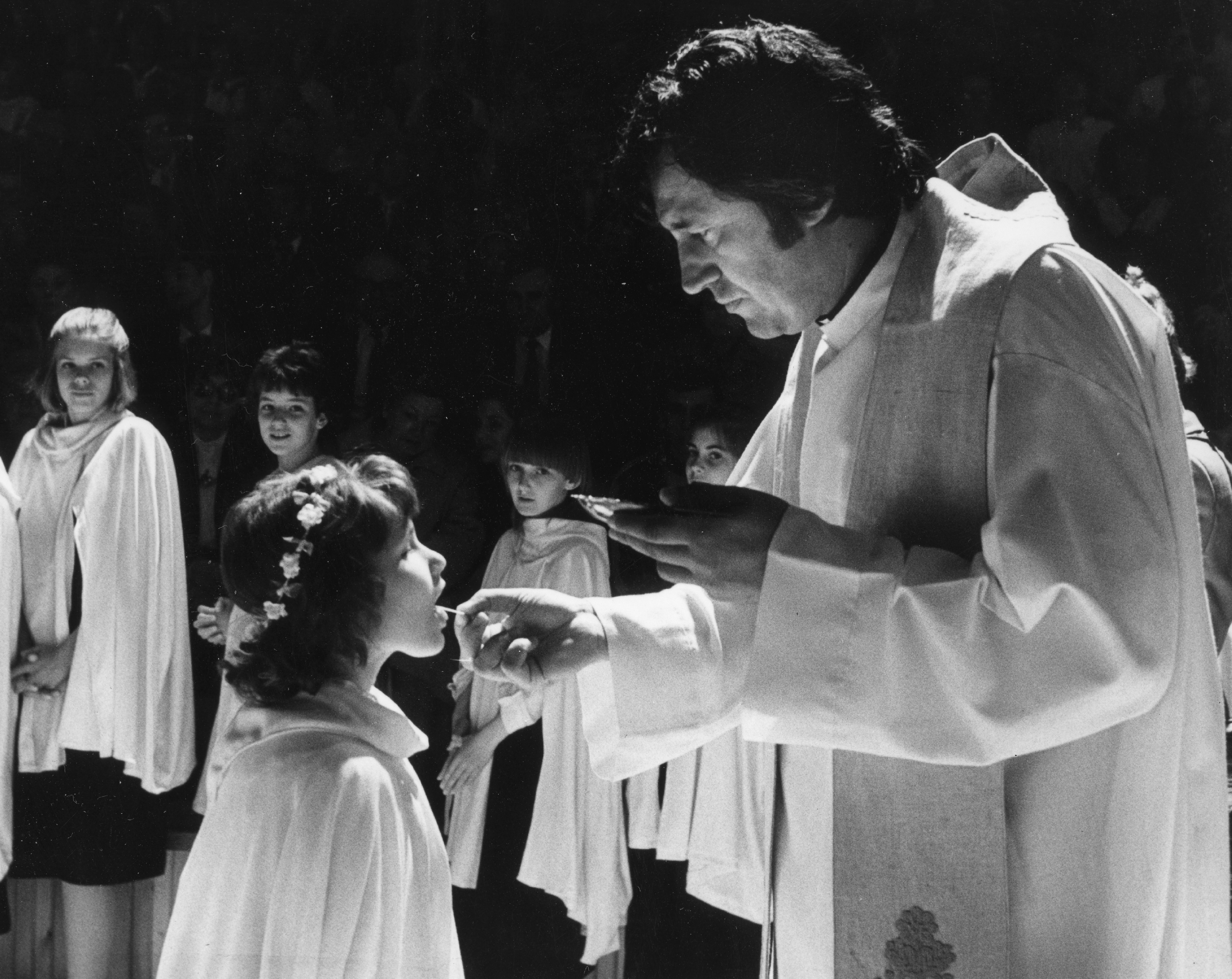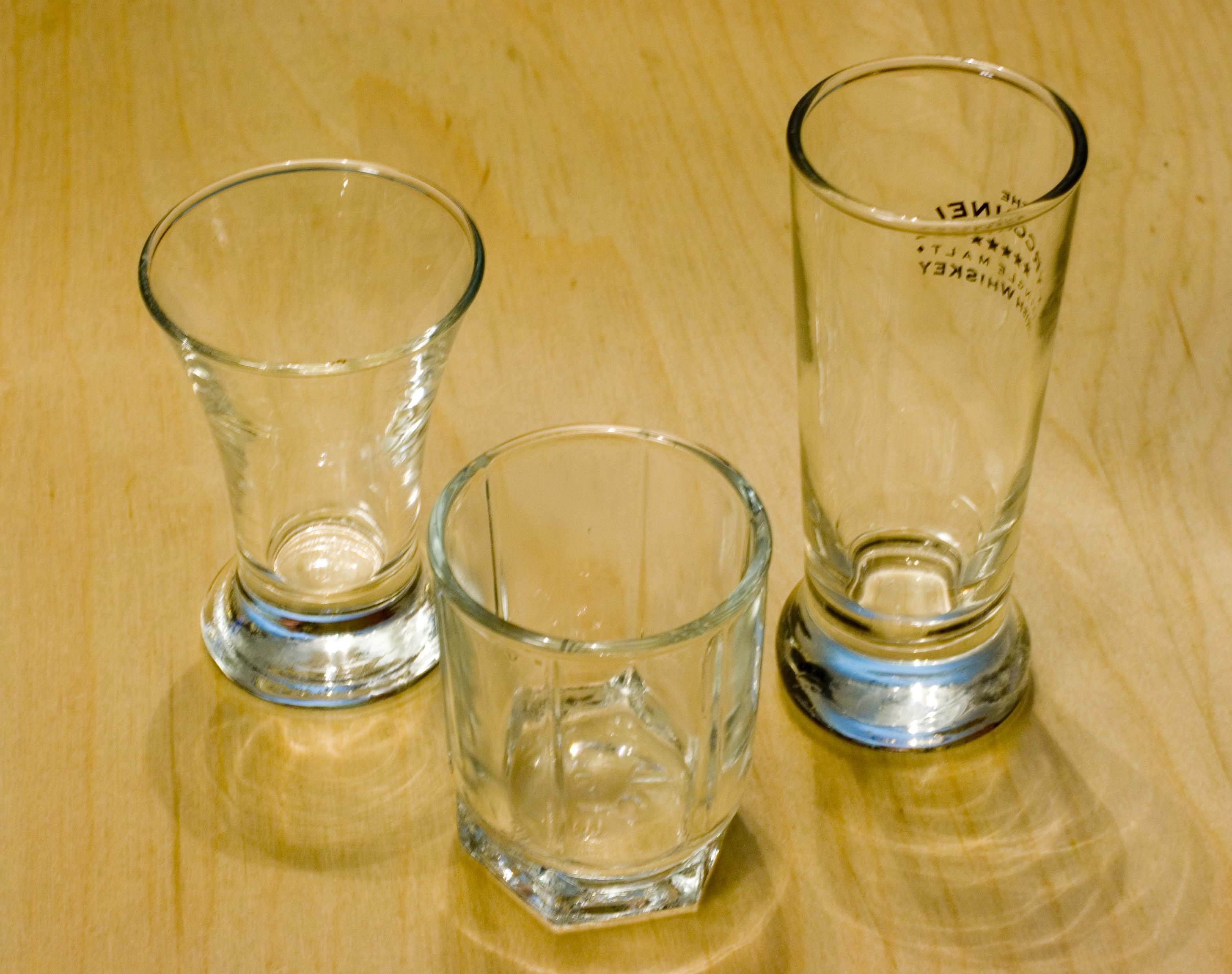|
Pierwsza Komunia, Drugie śniadanie, Trzecia Rzeczpospolita
"Płyta Big Cyc - "Bombowe Hity Czyli The Best Of 1988 - 2004" - Onet Muzyka". Muzyka.onet.pl. Retrieved 2015-04-06''Pierwsza komunia, drugie śniadanie, trzecia Rzeczpospolita'' - (Polish '' First Communion, second breakfast, third Rzeczpospolita'', second breakfast is a Polish idiom for lunch) is a studio album released by the Polish punk rock band Big Cyc in 1997. Track listing #"Guma" (''The Rubber'') #"Impreza w klubie harcerza" (''Party at the Boy Scout Club'') #"Zbyszek Kieliszek i koleżanka Szklanka" (''Zbyszek the Stemware and girlfriend the Shot glass'') #"Tylko mamona" (''Only Money'') #"Ballada o ścierwojadach" (''Ballad of carrion-eaters'') #"Koliber 66 (Zjeb od Doroty)" #"Światem rządzą kobiety" (''Women rule the world'') #"Schemat" (''Scheme'') #"Taniec lekkich goryli" (''Light gorilla dance'') - cover of Bielizna #"Wakacje z dygnitarzem" (''Holidays with a VIP'') #"Na bankiecie" (''At a banquet'') #"Twoja niemoc rodzi przemoc" (''Your infirmity causes brutal ... [...More Info...] [...Related Items...] OR: [Wikipedia] [Google] [Baidu] |
Big Cyc
Big Cyc ("Cyc" is Polish for " Tit") is a Polish rock band formed in March 1988. The band is well known in Poland for their controversial behaviour. The cover of their first album, ''Z partyjnym pozdrowieniem'' (Polish for ''With a Party Greeting''), was an image of Vladimir Lenin with a Mohawk hairstyle. The title of their second album, ''Nie wierzcie elektrykom'' (''Don't Trust Electricians'') refers to the Polish president Lech Wałęsa, an electrician by profession. Their fourth album cover, ''Wojna plemników'' (''War of Spermatozoons'') featured a nun drying condoms on a clothes line. In May 1999, the band leader Krzysztof Skiba was charged with indecent exposure and fined the equivalent of US$308 for mooning the Polish prime minister Jerzy Buzek during a festival in February 1999. History The members of Big Cyc met at the University of Łódź. Jędrzejak played guitar in a student reggae band ''Rokosz'' (laureate of the Golden Ten during the Jarocin Festival), Ski ... [...More Info...] [...Related Items...] OR: [Wikipedia] [Google] [Baidu] |
Z Gitarą Wśród Zwierząt
''Z gitarą wśród zwierząt'' - (Polish ''Among the animals with a guitar'') is a studio album of the punk rock band Big Cyc, released in 1996. The title refers to a popular Polish TV educational show, Z kamerą wśród zwierząt (Polish ''Among the animals with a camera''), led by Antoni and Hanna Gucwiński, the managers of the Wrocław zoo. Track listing #"Józef Oleksy o Shazzie" (Józef Oleksy about Shazza) #"Shazza, moja miłość" (Shazza, my love) #"Makumba" #"Wspaniałe miasto Amsterdam" (The wonderful city of Amsterdam) #" Gierek for ever" #"Będę śpiewał tylko ja (czyli zeznania Krzysztofa Krawczyka przed Trybunałem Stanu)" (Only I will sing, or Krzysztof Krawczyk's testimonies at the Tribunal of the State] #"Alkoholu pełne nieba" (Skies full of alcohol) #"Kręcimy pornola" (Let's make a porn) #"Na zadupiu" (In the jerktown) #"Tu nie będzie rewolucji" (There'll be no revolution) #"Pochwała higieny" (Praise of hygiene) #"Red Hot Chili Big Cyc" #"Pasażer" � ... [...More Info...] [...Related Items...] OR: [Wikipedia] [Google] [Baidu] |
Polish Language
Polish (Polish: ''język polski'', , ''polszczyzna'' or simply ''polski'', ) is a West Slavic language of the Lechitic group written in the Latin script. It is spoken primarily in Poland and serves as the native language of the Poles. In addition to being the official language of Poland, it is also used by the Polish diaspora. There are over 50 million Polish speakers around the world. It ranks as the sixth most-spoken among languages of the European Union. Polish is subdivided into regional dialects The term dialect (from Latin , , from the Ancient Greek word , 'discourse', from , 'through' and , 'I speak') can refer to either of two distinctly different types of linguistic phenomena: One usage refers to a variety of a language that is a ... and maintains strict T–V distinction pronouns, Honorifics (linguistics), honorifics, and various forms of formalities when addressing individuals. The traditional 32-letter Polish alphabet has nine additions (''ą'', ''ć'', ... [...More Info...] [...Related Items...] OR: [Wikipedia] [Google] [Baidu] |
First Communion
First Communion is a ceremony in some Christian traditions during which a person of the church first receives the Eucharist. It is most common in many parts of the Latin Church tradition of the Catholic Church, Lutheran Church and Anglican Communion (other ecclesiastical provinces of these denominations administer a congregant's First Communion after they receive baptism and confirmation). In churches that celebrate a rite of First Communion separate from baptism or confirmation, it typically occurs between the ages of seven and thirteen, often acting as a rite of passage. In other denominations first communion ordinarily follows the reception of confirmation, which occurs at some point in adolescence or adulthood, while Eastern Orthodox and Oriental Orthodox Christians first receive the sacrament of Holy Communion in infancy, along with Holy Baptism and Chrismation. Characteristics Catholics believe this event to be very important, as the Eucharist occupies a central role in C ... [...More Info...] [...Related Items...] OR: [Wikipedia] [Google] [Baidu] |
Rzeczpospolita
() is the official name of Poland and a traditional name for some of its predecessor states. It is a compound of "thing, matter" and "common", a calque of Latin ''rés pública'' ( "thing" + "public, common"), i.e. ''republic'', in English also rendered as ''commonwealth'' (historic) and ''republic'' (current). In Poland, the word is used exclusively in relation to the Republic of Poland, while any other republic is referred to in Polish as a , e.g., French Republic – pl, Republika Francuska. Origins The term has been used in Poland since the beginning of the 16th century. It was adapted for Poland, as it at that time had a unique republican system, similar to the former Roman . The famous quote by Jan Zamoyski, the Lord Chancellor of the Crown, on the importance of education is an example of its use: The meaning of is well described by the term ''commonwealth''. As a result, the literal meaning of is "Polish Commonwealth", or "Republic of Poland". Although the ... [...More Info...] [...Related Items...] OR: [Wikipedia] [Google] [Baidu] |
Idiom
An idiom is a phrase or expression that typically presents a figurative, non-literal meaning attached to the phrase; but some phrases become figurative idioms while retaining the literal meaning of the phrase. Categorized as formulaic language, an idiom's figurative meaning is different from the literal meaning. Idioms occur frequently in all languages; in English alone there are an estimated twenty-five million idiomatic expressions. Derivations Many idiomatic expressions were meant literally in their original use, but sometimes the attribution of the literal meaning changed and the phrase itself grew away from its original roots—typically leading to a folk etymology. For instance, the phrase "spill the beans" (meaning to reveal a secret) is first attested in 1919, but has been said to originate from an ancient method of voting by depositing beans in jars, which could be spilled, prematurely revealing the results. Other idioms are deliberately figurative. For example, " br ... [...More Info...] [...Related Items...] OR: [Wikipedia] [Google] [Baidu] |
Lunch
Lunch is a meal eaten around the middle of the day. It is commonly the second meal of the day, after breakfast, and varies in size by culture and region. Etymology According to the ''Oxford English Dictionary'' (''OED''), the etymology of ''lunch'' is uncertain. It may have evolved from ''lump'' in a similar way to ''hunch'', a derivative of ''hump'', and ''bunch'', a derivative of ''bump''. Alternatively, it may have evolved from the Spanish , meaning "slice of ham". It was first recorded in 1591 with the meaning 'thick piece, hunk' as in "lunch of bacon". The modern definition was first recorded in 1829. Luncheon ( or ) has a similarly uncertain origin according to the ''OED'', which they claim is "related in some way" to ''lunch''. It is possible that ''luncheon'' is an extension of ''lunch'' in a similarly way with ''punch'' to '' puncheon'' and ''trunch'' to '' truncheon''. Originally interchangeable with ''lunch'', it is now used in specially formal circumstanc ... [...More Info...] [...Related Items...] OR: [Wikipedia] [Google] [Baidu] |
Stemware
Stemware is drinkware that stands on stems above a base. It is usually made from glass, but may be made from ceramics or metals. The stem allows the drinker to hold the glass without affecting the temperature of the drink. Stemware includes: * Absinthe glasses * Champagne flutes * Chalices and goblets * Cocktail glasses (including martini glasses and margarita glasses) * Liqueur glasses * Rummers * Snifters * Wine glass A wine glass is a type of glass that is used to drink and taste wine. Most wine glasses are stemware (goblets), i.e., they are composed of three parts: the bowl, stem, and foot. Shapes The effect of glass shape on the taste of wine has not been ...es References * * External links Drinking glasses Drinkware {{drinkware-stub ... [...More Info...] [...Related Items...] OR: [Wikipedia] [Google] [Baidu] |
Shot Glass
A shot glass is a glass originally designed to hold or measure spirits or liquor, which is either imbibed straight from the glass ("a shot") or poured into a cocktail ("a drink"). An alcoholic beverage served in a shot glass and typically consumed quickly, in one gulp, may also be known as a "shooter". Shot glasses decorated with a wide variety of toasts, advertisements, humorous pictures, or other decorations and words are popular souvenirs and collectibles, especially as merchandise of a brewery. Name origin The word ''shot'', meaning a drink of alcohol, has been used since at least the 17th century, while it is known to have referred specifically to a small drink of spirits in the U.S. since at least the 1920s. The phrase ''shot glass'' has been in use since at least the 1940s. Earliest shot glasses Some of the earliest whiskey glasses in America from the late 1700s to early 1800s were called "whiskey tasters" or "whiskey tumblers" and were hand blown. They are thi ... [...More Info...] [...Related Items...] OR: [Wikipedia] [Google] [Baidu] |
Bass Guitar
The bass guitar, electric bass or simply bass (), is the lowest-pitched member of the string family. It is a plucked string instrument similar in appearance and construction to an electric or an acoustic guitar, but with a longer neck and scale length, and typically four to six strings or courses. Since the mid-1950s, the bass guitar has largely replaced the double bass in popular music. The four-string bass is usually tuned the same as the double bass, which corresponds to pitches one octave lower than the four lowest-pitched strings of a guitar (typically E, A, D, and G). It is played primarily with the fingers or thumb, or with a pick. To be heard at normal performance volumes, electric basses require external amplification. Terminology According to the ''New Grove Dictionary of Music and Musicians'', an "Electric bass guitar sa Guitar, usually with four heavy strings tuned E1'–A1'–D2–G2." It also defines ''bass'' as "Bass (iv). A contraction of Double ba ... [...More Info...] [...Related Items...] OR: [Wikipedia] [Google] [Baidu] |





